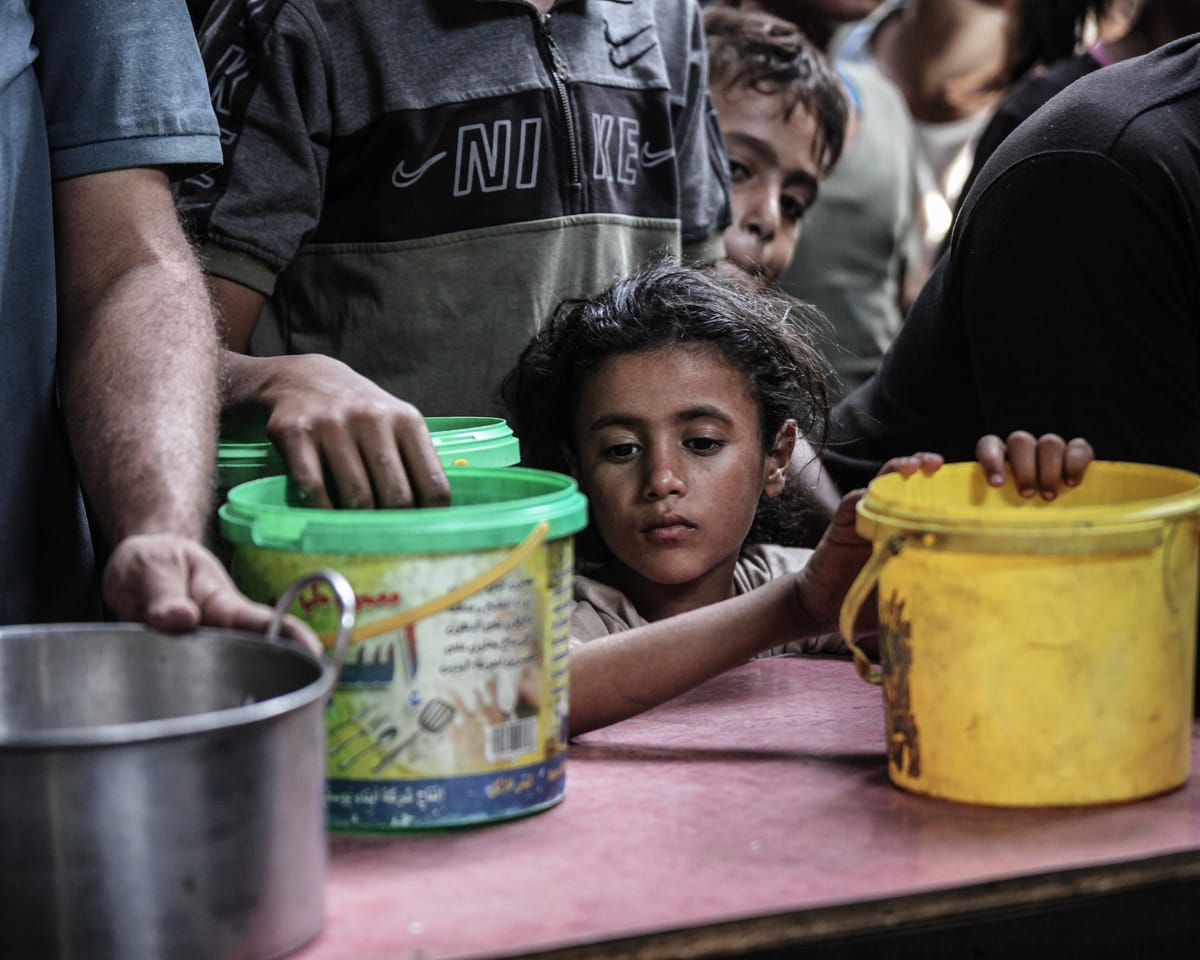An estimated 55,000 children in Gaza are suffering from acute malnutrition, a number far higher than previously identified cases of the life-threatening condition, according to a study published in *The Lancet*, a well-regarded international medical journal.
The research, released on Wednesday and conducted by the UN Relief and Works Agency for Palestine Refugees (UNRWA), provides a month-by-month analysis through much of the two-year conflict. For the first time, it establishes a direct connection between restrictions on aid entering Gaza and rising malnutrition levels among children.
Israeli officials have consistently rejected accusations of causing food shortages, stating that sufficient supplies are allowed into the territory and questioning the efficiency of humanitarian organizations operating there.
The findings emerge as indirect negotiations between Hamas and Israel in Egypt offer cautious hope for an end to the war.
A proposed 21-point plan, discussed last week in Sharm el-Sheikh, outlines a ceasefire, the release of hostages still held by Hamas, and a substantial increase in aid to Gaza, ensuring "unhindered delivery through the UN, its agencies, and the Red Crescent."
Dr. Akihiro Seita, UNRWA’s health director and a co-author of the study, warned that without an immediate halt to hostilities and the establishment of "unrestrained, effective international humanitarian support," more malnourished children would perish.
The study highlights the devastating nutritional impact of two years of conflict on Gaza’s children. Researchers analyzed arm circumference measurements from 220,000 children aged six months to five years between January 2024 and August 2025, when a UN-backed panel declared famine in parts of Gaza.
Initial screenings in January 2024 showed 5% of children exhibited signs of wasting—a figure that rose to nearly 9% six months later. After Israel intensified aid restrictions in late 2024, cases nearly doubled by January 2025.
A six-week ceasefire allowed more aid to enter, significantly reducing malnutrition rates before a strict 11-week blockade was imposed in March. Though eased in May 2025, the restrictions led to a sharp rise in wasting, affecting nearly 16% of screened children—almost a quarter of whom suffered from severe acute malnutrition, the most critical form of the condition.
The study estimates that across Gaza’s population, more than 54,600 children under six require urgent nutritional and medical care, including 12,800 severely malnourished cases.
Israel has accused Hamas of diverting aid shipments but has not substantiated claims of large-scale theft. The Israeli agency coordinating aid entry into Gaza, COGAT, has also alleged that Hamas deliberately obstructs distribution efforts.
Read next

"Indonesia school collapse: rescue efforts conclude with 67 fatalities"
Search Ends After Indonesian School Collapse Leaves Dozens Dead
Indonesian rescuers concluded their search on Tuesday for victims trapped beneath the rubble of a collapsed Islamic boarding school in East Java, after recovering more than 60 bodies, authorities confirmed.
The tragedy in the town of Sidoarjo struck last week when

"French PM makes last-ditch effort to save government as crisis deepens – Europe updates"
France's Political Standoff Continues as Prime Minister Seeks Cross-Party Support
France remains at a political stalemate as the outgoing prime minister, Sébastien Lecornu, makes a final attempt to gather support from rival parties for a new government.
President Emmanuel Macron assigned Lecornu, 39, to form a government in

"Macron calls emergency talks with parties to swiftly pick new PM"
Emmanuel Macron has called upon the leaders of several political factions to his office, urging them to demonstrate "collective responsibility" as he seeks to appoint a new prime minister amid growing political turmoil.
All parties except Marine Le Pen’s far-right National Rally, the largest opposition group, and

